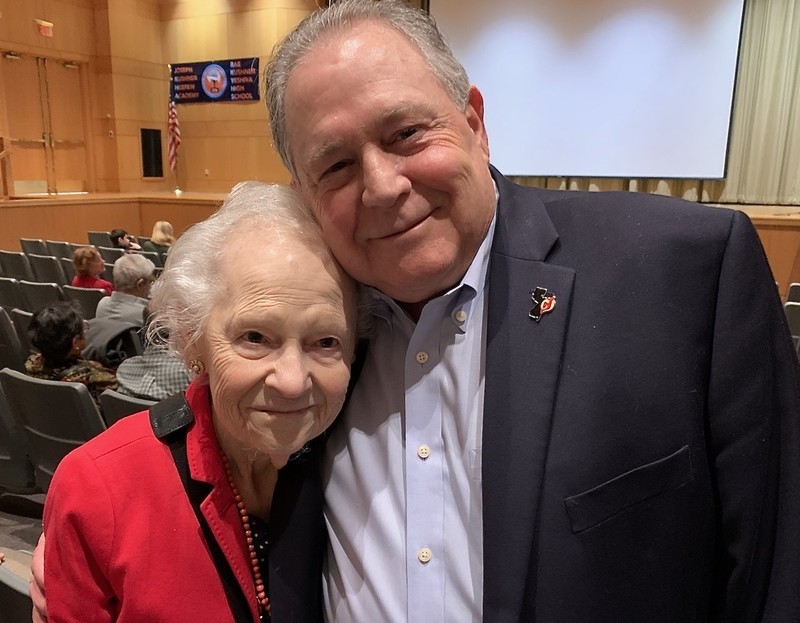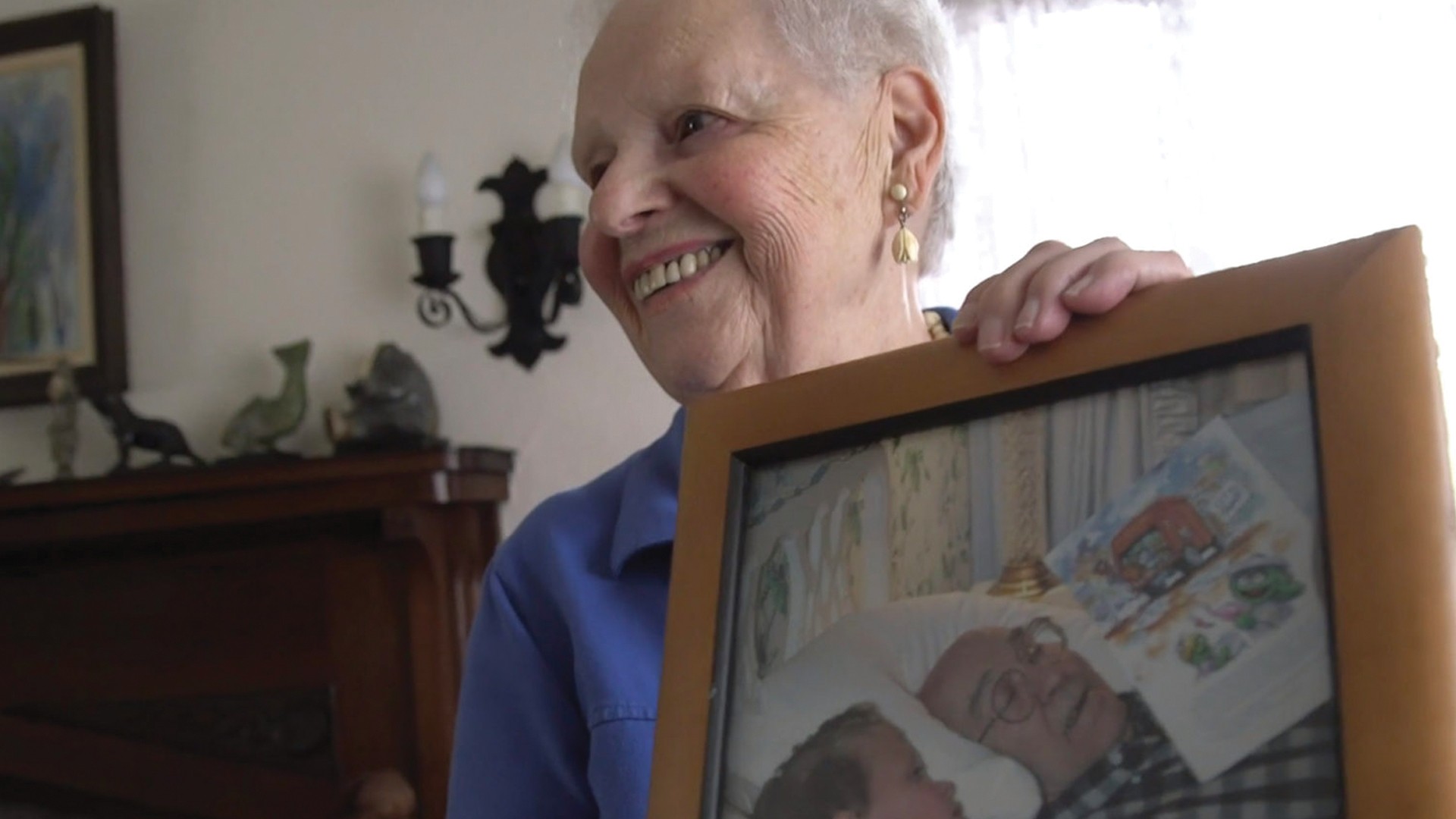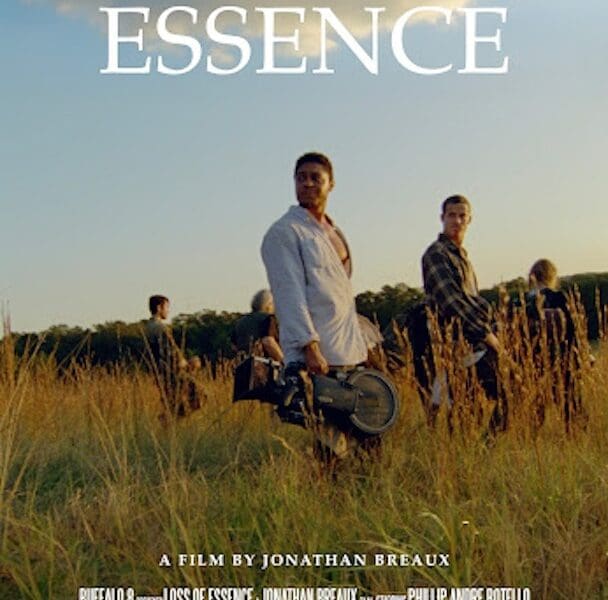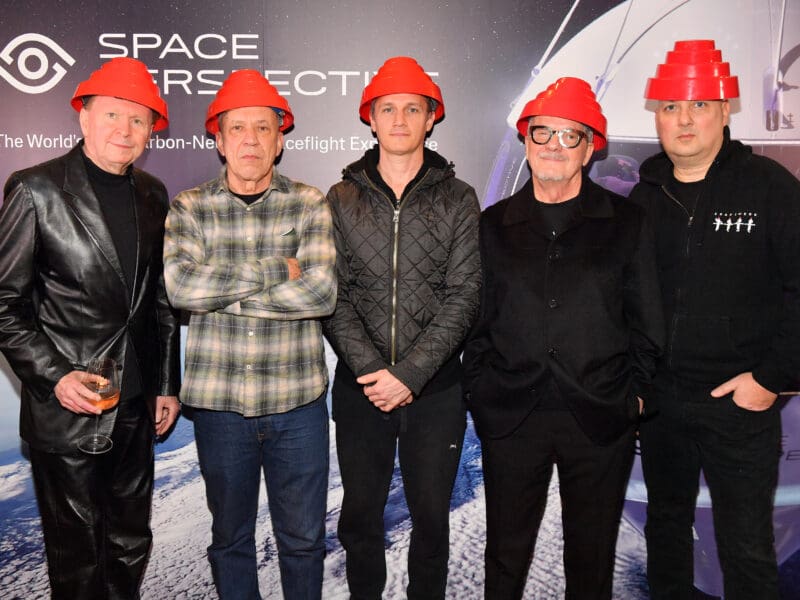
Get to know ‘An Inconvenient Time’ filmmaker Denny Klein
Denny Klein has been entertaining audiences his entire life. He earned his SAG card as a child actor in 1968, and went on to study music, filmmaking, theater arts, and multi-media at College of Marin and Sonoma State University. Klein was an apprentice at the hallowed Theater West in Hollywood for three years, but a lack of work led him to join his family’s insurance business in 1981.
Thankfully, Klein’s career was reinvigorated in 2012 when he started making documentary films. His most recent release, An Inconvenient Time: The Story of Ruth Ravina, delves into the life story of the titular Holocaust survivor and features his daughters Evie and Rebecca Klein in supporting roles. Klein’s next documentary, Through It All, will focus on country rock pioneer Richie Furay.
Film Daily had the privilege of talking with Denny Klein about his lengthy career, his documentary style, and his desire to share incredible true stories. Here’s what he had to say:

Tell us about your history in acting. How did you start your journey?
I started acting at a very young age, but professionally, I joined the screen actor’s guild in 1968 modeling and doing commercials in New York City. I used to take the train in from Jersey after school and go on interviews. I got set up with an agent, and that’s how I started my journey.
I eventually became the exclusive young men’s model for Palm Beach Clothing Company for two years, and I had full-page ads in the New York Times Sunday Magazine, so that was fun. I continued my career until I ended up as a starving actor in Hollywood in the late 70s, and that’s when I decided to go into the insurance business because I liked eating.
You became a SAG member in 1968. Did you learn anything as a child actor that has proved useful in your filmmaking career?
Yes. I think there’s a lot of subtle things that I was able to accomplish by being involved in show business and getting the perspective on that. Of course, when I studied music, theatre arts, multimedia and filmmaking in college, and then became an apprentice for 3 years at Theater East in Studio City; that was also very helpful.
You joined your family’s insurance business in 1981. Did you always intend to return to the arts or did you think your filmmaking career was over at the time?
I always continued to play and compose music but I did not think I would be making films or doing professional acting. Although, I did do a program with the Screen Actors Guild Foundation called BookPals where they had actors reading to kids and I did that for several years in the school system.
And every year on Dr. Suess’ birthday, I would dress up as the Cat in the Hat in full costume and makeup and do a performance for the elementary school kids. That gave me a chance to act, and I did that for many years.
You started making documentaries in 2012. Did you always want to become a documentarian or was it a passion you happened upon by chance?
The reason I started making documentaries was because of Ruth Ravina. We met up with Ruth through the Holocaust Council at the Jewish Federation of Greater MetroWest NJ, when my twin daughters were getting ready for their B’not Mitzvah Project.
It is customary in our community for the Bar/Bat Mitzvah candidates to do a community service project of some kind. My wife got us together with Ruth through Barbara Wind who was the ED of the Holocaust Council for the “Twin with a Survivor Program”, and they asked me to record the meetings. I didn’t think much of it at the time. We started recording our encounters with Ruth on my consumer, early High-Def video camera that I got from Costco for $400.
We recorded Ruth’s whole story, and I realized that Ruth’s story is so incredible that I needed to make a documentary about it. It was as if G-d tapped me on the shoulder and said, “You’ve got to do this!” I never thought of becoming a documentarian per se. You can say it happened by chance, but it was definitely a passion that happened by chance.

Your new documentary, An Inconvenient Time, details the life of Holocaust survivor Ruth Ravina. How did you get involved with Ravina’s story?
See above.
An Inconvenient Time is a feature length documentary. How did the production differ from your previous projects?
An Inconvenient Time is my first documentary. I had done some student films in college, but that was something I put aside for many, many years. This came about quite by accident, but maybe not quite such an accident. As we say in Yiddish, it was Beshert – it was meant to be.
The doc features compelling interviews with Ravina over a six-year period. Were there any revelations that stuck with you in particular?
There are so many! Some of the things that stuck out to me was the fact that Ruth had this amazing odyssey through the Holocaust. What stuck with me as well is the perspective of this little girl going through these incredible circumstances and being just saved in the nick of time on several occasions.
It stuck out to me that there must have been something more at work that she was able to survive, considering there were so many children of the Holocaust who did not survive. Ruth also remained kind, she has a sense of humor. She preached kindness to others and she was never embittered. And I think that’s one of the greatest lessons that I’ve learned and something that stuck with me. Ruth’s whole attitude is just amazing.
How important is it for a documentarian to develop a personal connection with their subject matter?
In many ways, developing a personal connection is so important to me because of the type of documentary filmmaking that I do. I like living history, and in that sense, the documentarian is part of the process. A lot of times filmmakers want to have this third wall, sort of like they are not there. And we see this in some of Ken Burns’ work – certainly one of my great heroes of documentary filmmaking – that it is more third party. I like the idea of being involved, and in our case, we were deeply involved.
Everyone in the production was involved with Ruth, because we were hearing her story in real time and we were interacting with her. So in this particular case, in this type of documentary, that personal connection was extremely important and it was also part of the whole basis of the story.
Ruth and my family became one – Ruth is like a member of our family now. This was the process that we went through together with my daughters Evie and Rebecca, my wife Cathy, my son Joey, our relationship with Ruth and her children, and her grandchildren. It was a real coming together.
Your daughters Evie and Rebecca Klein are a crucial part of the documentary. What was it like to work with your own kids on the set?
It was a very natural process, because I wouldn’t call it a “set.” We would go over to Ruth’s house, or we would be at the temple. This was a documentary recording what was really happening in real time. It was a joy to be involved with not only my daughters, but also my wife Cathy, others in the community, the historians, Ruth’s children and the people we worked with. It was a wonderful experience.
What is your favorite part of the filmmaking process?
Trying to let go and let the film be, is an important part of the filmmaking process. Favorite or not, it’s like having a child. Eventually you let go, it’s out there, and there you go. I’ve been involved in a few films now, and I love the whole process. All the problems and everything you have to go through is all wonderful – because at the end of the day, documentary filmmaking is a search for truth. I think that’s a wonderful journey to be on. As far as documentary filmmaking (and life) goes, the favorite part for me is that search for truth.
What is the main lesson you want audiences to take away from An Inconvenient Time?
The main lesson I want audiences to take away is the importance of being kind to each other. The world we live in has so many difficulties and so much tragedy, but out of that eventually has to come the idea of humanity. Humans being human to other humans. As Ruth talks about in the documentary, “Be kind to others.” I think that’s the main lesson I took from this film.
Your upcoming doc, Through It All, will detail the career of country rock pioneer Richie Furay. What initially drew you to Furay as a subject?
My upcoming project regarding the life and influence of Richie Furay was also one of those things that just came together somewhat by accident. I’m very friendly with Richie’s manager, and he and I became production partners in this process. I attended a concert where Richie was the opening act for Timothy B. Schmit, who is the current bass player and has been for many, many years with the Eagles.
I’m sitting there listening to Richie, and I’m listening to the sound that sounds so much like the Eagles and all these other people. It’s amazing! Then Timothy B. Schmit came up when it’s his time to do his set, and he said, “Richie Furay shouldn’t be opening for me, I should be opening for him. He taught me everything I know.”
In that moment, I had an epiphany and I realized that Richie’s influence – that the sound that we hear in so much of what we call Country Rock and now actually Country music today – really emanated from his work and his founding work with Poco, and even before that with Buffalo Springfield. Arguably “Kind Woman”, which is a song he made on the third BS album where they used pedal steel guitar as part of the song, was one of the earliest examples of Country Rock in the genre. I was also drawn to Richie because he is really a nice guy.

Furay was part of several legendary bands like Buffalo Springfield and Poco. What makes his career stand out amidst his musical peers?
First of all, Richie chose family over his career. Eventually, that became more important to him. He moved to Colorado and stopped doing commercial music. He became a pastor and a born-again Christian. One of the things that stands out about his career, different from Stephen Stills and Neil Young who went on to major fame – Richie was famous but he did not have the same level of fame or monetary success that they did.
But Richie was in his own right a major musical pioneer in Americana Music, Country Rock, and Folk Rock. Even though Stephen Stills and Neil Young were amazing songwriters, Richie crafted himself into an incredible songwriter as well and he’s still going strong. One of the things that also makes him stand out amongst his musical peers is simply that: Richie is still going strong.
He performs, he has an amazing voice and he reaches people. He came back to his career at a time when many of his peers don’t quite have the same juice they used to have. I think when people see our new concert film of Richie Furay’s 50th Anniversary Return to the Troubadour, they are going to understand just how prolific Richie is, not only in his songwriting capabilities but also as a performer.
Does your directing approach change depending on your subject matter?
My directing approach on An Inconvenient Time was mostly based on the fact that I had to come up with a vision of what I thought this was really about. In this case, Ruth’s odyssey through the Holocaust really reminded me of the heroic epic that we see in the Odyssey of Homer. I saw a parallel between Ruth’s story and the odyssey of Ulysses. But as opposed to the god’s point of view looking down, Ruth’s story is one of a little child looking up.
The approach we took on this particular project was fueled by that idea for two main reasons. Firstly, so that people understand that while Ruth is telling the story as an old, Jewish lady – she really experienced this as a very young toddler and child. We did a lot of point of view in relation to that, and a lot of the ideas behind the illustration and animation was to keep reinforcing that. The other thing is to reinforce that Ruth’s story is true. This is not a fantasy. It is not fiction.
It was very important to me in working with our editor Morgan Taylor, and eventually Joe Schreiber, to make sure that we indicate to the audience that this is a true story. That is why we interwove a lot of different interviews over many years, to be able to demonstrate that the story was not by rote and that it was always the same story. My directing approach, in terms of the types of projects that I am currently working on, is always to reinforce that this is real people and real history.
Who are your biggest filmmaking influences?
From the documentary standpoint – who is not influenced by Ken Burns? He is a genius and in some ways created much of the genre that we know today as documentary filmmaking. I also love what Ron Howard is doing with documentary filmmaking, and Steven Spielberg has been so influential in Holocaust related issues. Also, of course, Francis Ford Coppola and The Godfather is a huge influence for me. When I wrote the score for An Inconvenient Time, I was also very influenced by several composers.
The most perhaps is Ennio Morricone, who did The Good, the Bad and the Ugly; Cinema Paradiso, and Once Upon a Time in America. These are amazing compositions. I was very much influenced by him because he does a technique that many other film composers do, which is to assign themes to individuals or spaces or time, so you have a nostalgic element to the music that keys you in psychologically and somewhat unconsciously into what’s going on. Fun fact, I have also put some homages in my film for Spielberg (Schindler’s List), David Chase (The Sopranos), Coppola (The Godfather Part II), and Victor Fleming (Gone with the Wind). See if you can find them.
You compose music in addition to your doc career. Do you have plans to score your future releases?
For my current project with Richie Furay, I don’t have to do any of the music because he’s handling that just fine considering he is one of the great Rock & Roll Hall of Famers and pioneers of Americana music. As far as future releases, we’ll see what happens.

Since you started your career in front of the camera, do you have a desire to act again?
Do I have a desire to act again? Of course! Do you know of any jobs that I might be able to get into? I’m always looking for a gig and I do keep my union dues up, for anyone who may be interested. LOL.
What do you consider to be your greatest success?
My greatest success has nothing to do with filmmaking, it has everything to do with my family. My greatest success in life is my three wonderful children, my lovely wife (and of course our rescue dog), and watching my children grow into the amazing human beings that they are. They are intellectually curious, they have self-respect and I have to say that is my greatest success in life.
I have a very successful insurance career, which I’m happy about. My son has come into business with me as fourth-generation in a family business setting. That’s a great success too, to see four generations of my family continue into the insurance business.
What advice do you have for aspiring documentary filmmakers?
Go out there and just do it. Grab a hold of the reins, hold on tight and see where it goes. Put your passion into it. Joseph Campbell said, “Follow your bliss.” A lot of the work that I did on An Inconvenient Time was related to Joseph Campbell’s work. But I love the idea, and when you see the documentary about Ken Burns, you see how much passion he has for what he does. Whatever you do in life, put your whole heart into it. Put your whole self into it. Find your passion; follow your bliss.
I think that will take you a long way. And also the recognition that, like acting and like pursuing a professional acting career, you’re going to get knocked down a lot. Not everyone is going to love your film. Not everyone is going to resonate with what you do, but you have to believe in yourself and believe in your vision.
So many of my filmmaking colleagues who were in festivals we participated in recently just blew my mind with their fantastic work. Perhaps there has never been a greater time or opportunity for documentarians and independent filmmakers.
What is your favorite documentary of all time?
I have several of them. Recently, I loved the Linda Ronstadt documentary. I can name several things by Ken Burns, but I really enjoyed his multi-part series on Country Music – which I watched every bit of in relation to my interest in Richie Furay. Ron Howard’s doc on the Beatles. There was also a two-part Laurel Canyon documentary I enjoyed on Epix that Richie did take a small part in. As for my favorite documentary of all-time, I don’t have an answer for that one, yet.







